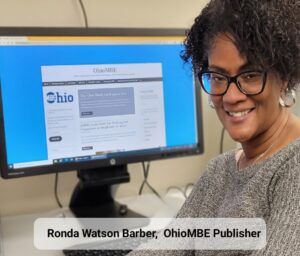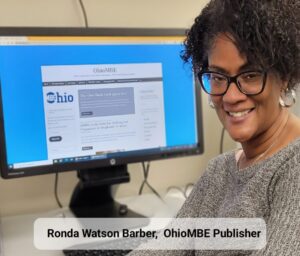
By Ronda Watson Barber
OhioMBE Publisher
Columbus City Schools’ (CCS) current reliance on Cooperative Purchasing is not just a missed opportunity; it’s becoming a clear disregard for the local and Black businesses that are the backbone of our community. When Angela Chapman’s administration, with the nod from board member Michael Cole, chooses external vendors for the sake of so-called better quality, it diminishes the value and trust placed in our local, Black-owned businesses.
This approach is more than an oversight; it’s a direct affront, especially when considering the recent oversight involving the dedicated Outreach Coordinator, who runs the LEDE program. Despite her central role, she was notably excluded from an LEDE Open House event, hosted by Capital Improvements alongside a cooperative purchasing company from South Carolina. Such an omission not only undercuts the significance of her work and the LEDE program itself but also signals a worrying disconnect in CCS’s commitment to inclusion and community support. Capital Improvements does not have a supplier diversity specialist on staff.
The lack of invitation to the Outreach Coordinator, alongside the broader preference for Cooperative Purchasing, starkly highlights the challenges local Black vendors face. It’s a slap in the face to those who contribute significantly to the district through their taxes and to those who tirelessly work to ensure that CCS’s procurement processes reflect the diversity and strength of our community.
Moreover, this stance raises concerns among the local NAACP branch and Black taxpayers, who rightfully expect CCS to prioritize local engagement and reinvest in the community that sustains it. The current procurement strategy, favoring companies outside our immediate community, questions the district’s dedication to the principles of equity, inclusion, and local empowerment.
It’s imperative that CCS reevaluates its procurement practices. This isn’t merely about where we buy from; it’s about acknowledging and supporting the wealth of talent and dedication within our community. By sidelining local, Black-owned businesses and overlooking key figures like the Outreach Coordinator, CCS misses crucial opportunities to strengthen its connection to the community, demonstrate its commitment to inclusion, and make the most of taxpayer contributions.
Let’s advocate for CCS to take a hard look at its procurement policies, ensuring they not only talk about diversity and inclusion but actively practice it by prioritizing local engagement and recognizing the value local businesses and leaders bring to our students and community alike.
just my thoughts…rwb
Discover more from OhioMBE
Subscribe to get the latest posts sent to your email.
